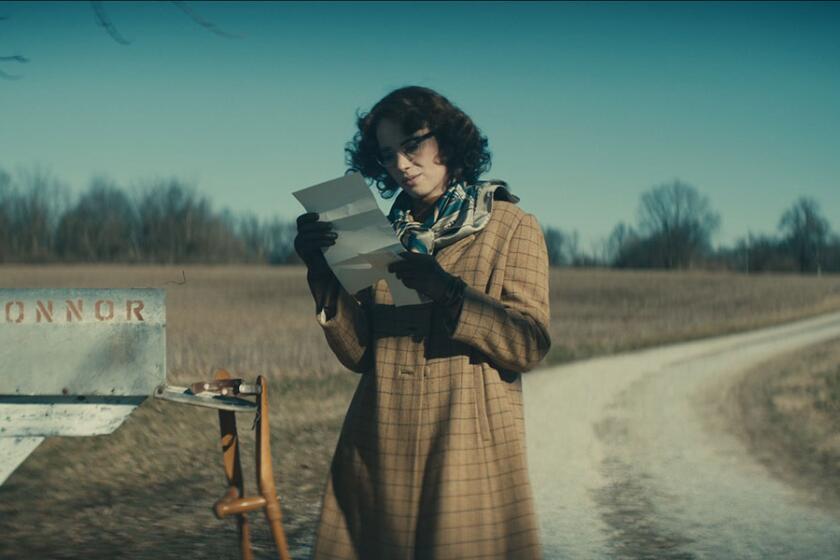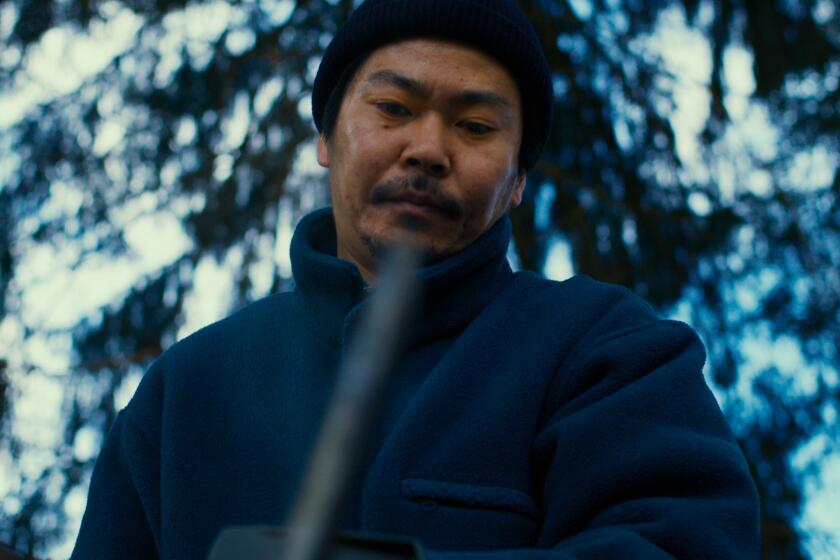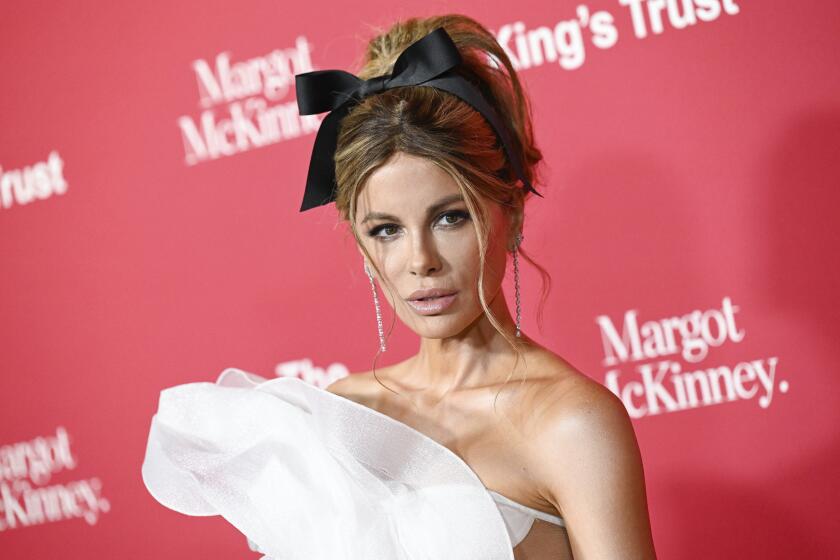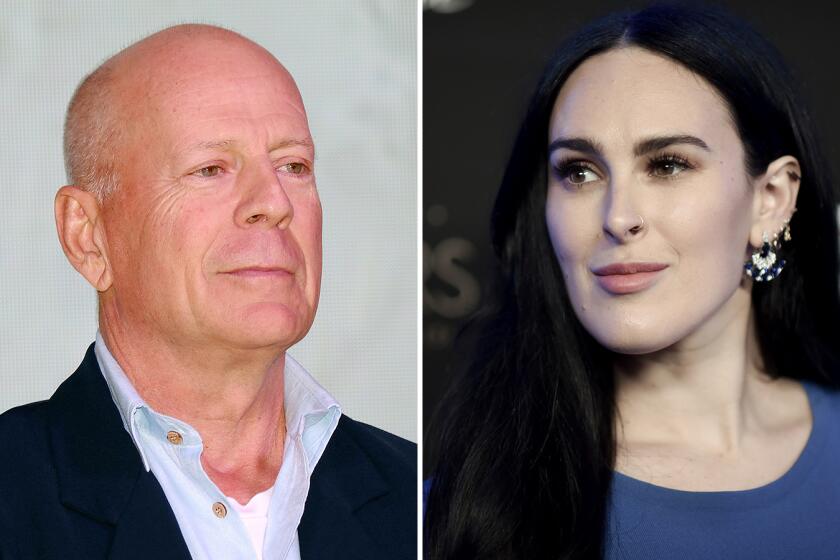The 2009 Palme d’Or goes to Michael Haneke’s ‘The White Ribbon’
It felt like “friends and family” night at the Festival de Cannes when the world’s most prestigious film event handed out its awards on Sunday.
With French actress Isabelle Huppert as president of the jury, prizes in three of the eight categories went to French filmmakers, another went to an actor who speaks some of his lines in French and the Palme d’Or went to a director who has made some of his best-known films in French, including one with the jury president.
That would be Austrian director Michael Haneke, whose “The White Ribbon” marked a return to German-language filmmaking for the director of “Cache.” Impeccably made with hypnotic skill and control and set in a kind of “Village of the Damned” in northern Germany in the years before World War I, this carefully controlled black-and-white venture (which also won the FIPRESCI International Critics Prize) is as disturbing underneath as it is seemingly placid on the surface.
Huppert, who presented the award, said she was giving it “with a certain emotion,” and when Haneke, who’d directed Huppert in 2001’s “The Piano Teacher,” came on stage to accept it, actress and director exchanged a clearly emotional hug.
The two most popular awards of the night went to French films. Jacques Audiard’s “A Prophet,” by general consensus the best film of the festival, got the Grand Prix, considered Cannes’ runner-up prize.
Made with the filmmaker’s trademark emotional intensity and ability to elevate traditional genre material to exceptional heights, Audiard’s complex story of a young Arab man’s coming of age and into power during six years inside a corrupt, brutal prison got sustained applause when its name was announced.
Also a crowd-pleasing choice was a Special Prize, kind of a lifetime achievement award, which went to 87-year-old director Alain Resnais, who was looking spry with snow-white hair and matching shoes and wearing a red tie against a black shirt. His film “Wild Grass” was as sophisticated and visually playful as the man himself.
Taking the best actress award was Charlotte Gainsbourg, more popular in France than her film, Lars von Trier’s exceptionally violent “Antichrist,” is likely to be. In tears, Gainsbourg thanked her mother, actress Jane Birkin, and her father, the late singer-songwriter Serge Gainsbourg.
The only American film to claim an award was Quentin Tarantino’s World War II fantasia “Inglourious Basterds,” which took the best actor prize for Christoph Waltz, who plays a Nazi colonel fluent in four languages. Waltz thanked Tarantino, saying “with your passion and conviction, you gave me my vocation back.”
The only American film to win anything else anywhere was Cherien Dabis’ Sundance hit, “Amreeka,” the poignant yet pointed story of a Palestinian family’s uncertain reaction to moving to the U.S., which took the FIPRESCI Prize for Directors’ Fortnight.
Another English-language film that did well was Australian director Warwick Thornton’s “Samson and Delilah,” which won the Camera d’Or for best first film. Andrea Arnold’s British “Fish Tank,” the story of a sullen 15-year-old and her dead-end life, shared the Jury Prize with South Korean director Park Chan-wook’s vampire film, “Thirst.”
That selection was one of several choices that reflected the jury’s thirst for darkness over light. Philippine director Brillante Mendoza’s “Kinatay,” a story of a kidnapping and its bloody aftermath -- and perhaps the competition’s least popular film -- walked off with the best director award.
Also unpopular with festival-goers was the choice of the messy Chinese relationship film, Lou Ye’s “Spring Fever,” for best screenplay for writer Feng Mei.
Doomed to neglect were any films the jury doubtless deemed too conventional and/or too warm. These included “Bright Star,” Jane Campion’s exceptionally intimate and restrained examination of the tragic romance of poet John Keats and Fanny Brawne, and “Looking for Eric,” a genial change-of-pace for British director Ken Loach.
Loach’s film tells the crowd-pleasing story of how a beleaguered postman begins to use, at least in his own mind, real-life soccer legend Eric Catona as a kind of life coach whose enigmatic advice helps him through his difficulties.
The most pleasant surprise of the festival, though not in competition, was “A Town Called Panic,” a drop-dead wacky animated feature by Belgian filmmakers Stephane Aubier and Vincent Patar. The story of three housemates -- Cowboy, Indian and Horse -- and how they try to keep from, well, panicking is the first stop-motion animated film ever in the official selection. An absurdist romp, it has a primi- tive/sophisticated style all its own.
Also completely unexpected was “Images From the Playground,” a half-hour compilation of the best of the home movies Swedish director Ingmar Bergman made of behind-the-scenes antics over the years, from 1953’s “Sawdust and Tinsel” through 1965’s “Persona.” If there was a more boggling Cannes image than seeing the creator of somber, wrenching cinematic landmarks breaking into a comic Groucho walk, I didn’t hear about it.
The most completely emotional screening of the festival might have been the world premiere of the UCLA Film & Television Archive’s restoration of “The Red Shoes,” which played to a large and enthusiastic sold-out crowd that included the descendants of key personnel, including co-directors Michael Powell and Emeric Pressburger and star Moira Shearer.
Introducing the film was Powell’s widow, the ace editor Thelma Schoonmaker, and her frequent collaborator, director Martin Scorsese, who told the crowd he’d first seen “Red Shoes” as an 8-year-old in 1950, adding, “I wouldn’t know where to begin to explain what this film means to me.” Given that it concerns itself, in Scorsese’s words, with “the mystery of the obsession of creativity,” the restoration couldn’t have found a better place to debut than this obsessive, creative, one-of-a-kind festival.
--
More to Read
Only good movies
Get the Indie Focus newsletter, Mark Olsen's weekly guide to the world of cinema.
You may occasionally receive promotional content from the Los Angeles Times.







